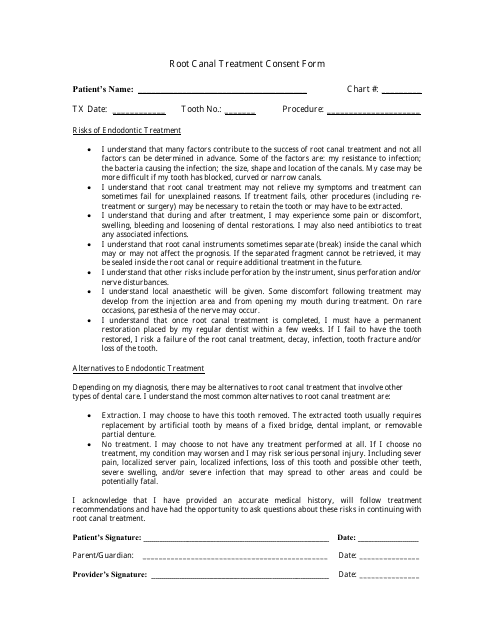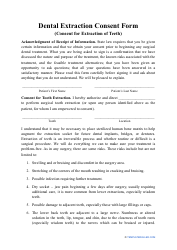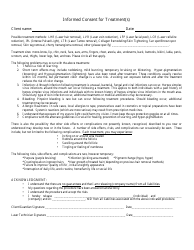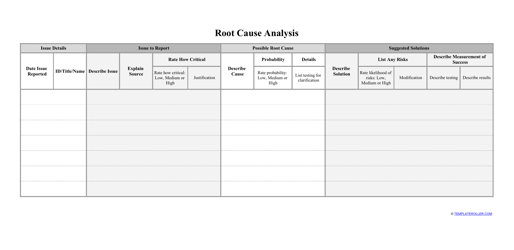Root Canal Treatment Consent Form
A Root Canal Treatment Consent Form is used to document a patient's consent and acknowledgment for undergoing a root canal procedure. It outlines the potential risks, benefits, and alternatives of the treatment and ensures that the patient understands the procedure and gives their informed consent.
The patient undergoing the root canal treatment files the consent form.
FAQ
Q: What is a root canal treatment?
A: A root canal treatment is a dental procedure that involves removing the infected or damaged pulp from a tooth and sealing it to prevent further infection.
Q: Why might I need a root canal treatment?
A: You may need a root canal treatment if you have a severely decayed tooth, a deep dental infection, or if your tooth has suffered trauma.
Q: Does a root canal treatment cause pain?
A: During the procedure, local anesthesia is used to numb the area, so you should not feel any pain. After the procedure, you may experience some discomfort, but this can be managed with over-the-counter pain medications.
Q: Are there any risks or complications associated with a root canal treatment?
A: Like any dental procedure, there are risks involved, but they are usually rare. Risks may include infection, damage to surrounding tissues, or the need for additional dental work.
Q: How long does a root canal treatment take?
A: The length of the procedure can vary depending on the tooth being treated and the complexity of the case. Generally, a root canal treatment takes one to two visits to the dentist.
Q: What happens after a root canal treatment?
A: After a root canal treatment, you may need to have a crown or filling placed on the tooth to protect it and restore its function. It is important to practice good oral hygiene and attend regular dental check-ups to ensure the success of the treatment.
Q: How much does a root canal treatment cost?
A: The cost of a root canal treatment can vary depending on factors such as the location of the tooth, the complexity of the case, and your dental insurance coverage. It is best to consult with your dentist to get an accurate cost estimate.
Q: Is a root canal treatment the only option for a tooth with a damaged pulp?
A: In some cases, alternative treatments such as tooth extraction may be considered. However, a root canal treatment is often the preferred option as it allows you to keep your natural tooth.
Q: Is a root canal treatment covered by dental insurance?
A: Many dental insurance plans provide coverage for root canal treatments, but the extent of coverage may vary. It is important to check with your insurance provider to understand the details of your coverage.
Q: Is it normal to feel anxious before a root canal treatment?
A: It is common to feel anxious or nervous before a root canal treatment. You can discuss your concerns with your dentist, who can provide reassurance and may offer options to help you relax during the procedure.




